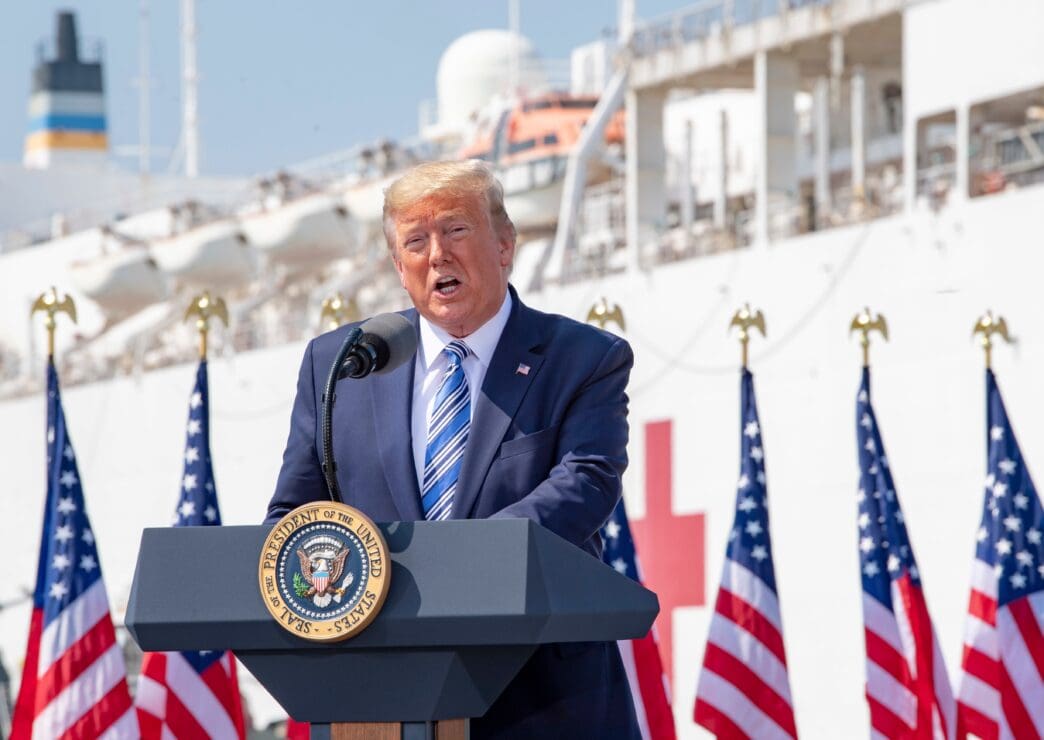Executive Summary
The Story So Far
Why This Matters
Who Thinks What?
President Donald Trump and Secretary of Defense Pete Hegseth addressed senior military officers at Marine Corps Base Quantico on Tuesday, delivering ultimatums and outlining a new “warrior ethos” for the U.S. military. Their message emphasized a need for increased physical fitness, specific cultural shifts, and a readiness to engage in what Trump termed a “war from within” American cities. Both leaders suggested that officers who disagreed with the new directives should consider resigning.
Military Readiness and Cultural Shifts
Secretary Hegseth’s remarks focused on the military’s perceived lack of readiness, criticizing “fat generals” and announcing new physical fitness requirements for all personnel, including generals and admirals. He also detailed new grooming standards, specifically banning beards.
Hegseth declared an end to “climate change worship” and “dudes in dresses,” advocating for a monthly Christian prayer service. He proposed reverting the military’s operational philosophy to a “1990s” mindset, discarding changes not directly related to combat evolution, which he characterized as “softening, weakening, or gender-based pursuit of other priorities.”
Rules of Engagement and Expert Concerns
The Defense Secretary called for “no more politically correct and overbearing rules of engagement,” prioritizing “common sense, maximum lethality.” Retired Major Gen. Marilyn Quagliotti expressed concern over this stance, warning that rejecting such rules could lead to a loss of discipline, citing Russian military actions as an example of an army without such constraints.
Diversity, Merit, and Women in Combat
Hegseth expressed skepticism about women in combat roles, anticipating that new fitness tests would create barriers, a consequence he accepted. Both Trump and Hegseth argued for a return to a “meritocracy,” which they claimed had been undermined by diversity initiatives within the service. Kyleanne Hunter, CEO of Iraq and Afghanistan Veterans for America, criticized this focus as a “culture war” rather than military readiness, noting existing programs to aid recruit preparation.
Domestic Deployment of Troops
President Trump’s remarks centered on the potential deployment of U.S. troops within American cities, which he described as an “invasion from within” and “a big part of war now.” He referenced historical instances where presidents used armed forces for domestic order and indicated a willingness to dispatch National Guard troops to cities governed by “radical left Democrats,” regardless of local opposition.
This approach has raised questions regarding U.S. laws and traditions, which typically restrict military involvement in domestic law enforcement. A federal judge previously ruled against a Trump administration deployment in Los Angeles around anti-ICE protests for violating federal law.
Leadership Expectations
Hegseth explicitly stated a preference for leaders akin to World War II’s Gen. George Patton, contrasting them with figures like Gen. Mark Milley, who opposed domestic troop deployment during Trump’s first term. This comparison was interpreted by some in attendance as a warning to officers who might challenge the new directives.
Outlook for the Military
The address at Quantico signals a significant proposed overhaul of the U.S. military’s cultural norms, readiness standards, and potential operational scope, particularly concerning domestic engagements. The strong rhetoric and direct ultimatums underscore a clear intent to reshape the armed forces under the current administration.








